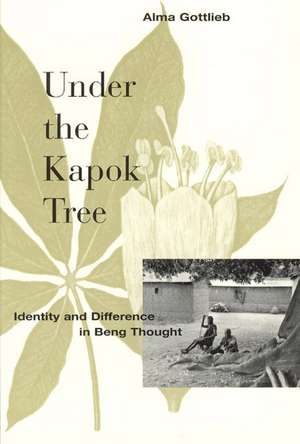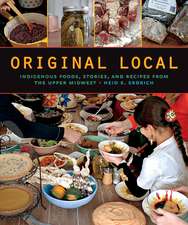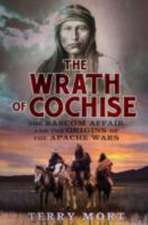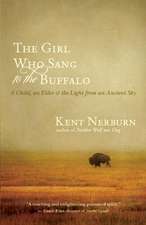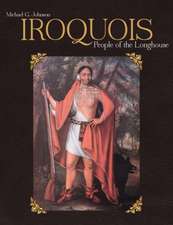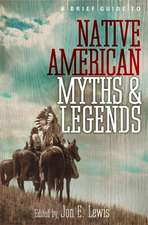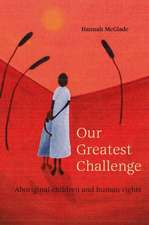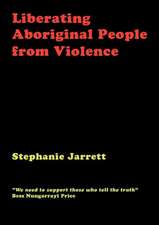Under the Kapok Tree: Identity and Difference in Beng Thought
Autor Alma Gottlieben Limba Engleză Paperback – 15 dec 1996
In this companion volume to Parallel Worlds, Alma Gottlieb
explores ideology and social practices among the Beng people of Côte
d'Ivoire. Employing symbolic and postmodern perspectives, she highlights
the dynamically paired notions of identity and difference, symbolized by
the kapok tree planted at the center of every Beng village.
"This book merits a number of readings. . . . An experiment in
ethnography that future projects might well emulate." —Clarke K. Speed,
American Anthropologist
"[An] evocative, rich ethnography. . . . Gottlieb does anthropology a
real service." —Misty L. Bastian, American Ethnologist
"Richly detailed. . . . This book offers a nuanced descriptive analysis
which commands authority." —Elizabeth Tonkin, Man
"Exemplary. . . . Gottlieb's observations on identity and difference are
not confined to rituals or other special occasions; rather she shows
that these principles emerge with equal force during daily social life."
—Monni Adams, Journal of African Religion
"[An] excellent study." —John McCall, Journal of Folklore
Research
explores ideology and social practices among the Beng people of Côte
d'Ivoire. Employing symbolic and postmodern perspectives, she highlights
the dynamically paired notions of identity and difference, symbolized by
the kapok tree planted at the center of every Beng village.
"This book merits a number of readings. . . . An experiment in
ethnography that future projects might well emulate." —Clarke K. Speed,
American Anthropologist
"[An] evocative, rich ethnography. . . . Gottlieb does anthropology a
real service." —Misty L. Bastian, American Ethnologist
"Richly detailed. . . . This book offers a nuanced descriptive analysis
which commands authority." —Elizabeth Tonkin, Man
"Exemplary. . . . Gottlieb's observations on identity and difference are
not confined to rituals or other special occasions; rather she shows
that these principles emerge with equal force during daily social life."
—Monni Adams, Journal of African Religion
"[An] excellent study." —John McCall, Journal of Folklore
Research
Preț: 233.50 lei
Nou
Puncte Express: 350
Preț estimativ în valută:
44.69€ • 46.16$ • 37.19£
44.69€ • 46.16$ • 37.19£
Carte tipărită la comandă
Livrare economică 25 martie-08 aprilie
Preluare comenzi: 021 569.72.76
Specificații
ISBN-13: 9780226305073
ISBN-10: 0226305074
Pagini: 201
Ilustrații: 2 maps, 10 line drawings
Dimensiuni: 152 x 229 x 15 mm
Greutate: 0.29 kg
Ediția:1
Editura: University of Chicago Press
Colecția University of Chicago Press
ISBN-10: 0226305074
Pagini: 201
Ilustrații: 2 maps, 10 line drawings
Dimensiuni: 152 x 229 x 15 mm
Greutate: 0.29 kg
Ediția:1
Editura: University of Chicago Press
Colecția University of Chicago Press
Cuprins
Preface
Acknowledgments
1. The Beng in the World of Ideas
2. Of Kapoks and the Earth
3. Double Descent as a System of Thought
4. The Marriages of Cousins
5. Hunting Dogs and Laughing Hyenas
6. Commodities
Notes
References
Index
Acknowledgments
1. The Beng in the World of Ideas
2. Of Kapoks and the Earth
3. Double Descent as a System of Thought
4. The Marriages of Cousins
5. Hunting Dogs and Laughing Hyenas
6. Commodities
Notes
References
Index
Recenzii
“Richly detailed. . . . This book offers a nuanced descriptive analysis which commands authority.”
“[An] evocative, rich ethnography . . . Gottlieb does anthropology a real service.”
“[An] excellent study. . . . Breathes new life into . . . systems of thought and social organization.”
“This book merits a number of readings . . . . [Gottlieb’s] portrayal of the Beng world is rich and detailed . . . [A ] demonstration of what good ethnography can be: where penetrating description generates interpretation and scoial theory, all of which are substantiated by a variety of case studies, myths, texts, symbols, and metaphors . . . An experiment in ethnography that future projects might well emulate.”
“Exemplary . . . . Gottlieb’s observations on identity and difference are not confined to rituals or other special occasions; rather she shows that these principles emerge with equal force during daily social life.”
“… based on excellent ethnography . . . Gottlieb does not speak in jargon; readers will appreciate the readability and presentation of her text . . . the author’s personality appears implicit, installed under the village kapok tree, in her rightful place between our world and that of the Beng.”
“. . . the ethnographic data are described in a lively fashion . . . poses new issues that should further interest anthropologists in the future.”
“Alma Gottlieb’s study of a little-known group in Côte d’Ivoire, the Beng, is a well-written, entertaining, provocative, and conceptually elegant ethnographic study placed partly in a postmodern theoretical framework. . . Gottlieb uses ‘cases’--stories from fieldwork--that are set apart in the text and illustrate points she is discussing. This is a very successful format for integrating field work data into the study. . . . Under the Kapok Tree is . . . thought-provoking in many of the chapters. It is so clearly written that even in the midst of the complexities of lineage and alliance systems, the reader is at ease with the writing.”
“Gottlieb’s work represents a major contribution to the field of cultural anthropology, and is a positive addition to the already existing works on various West Africa cultures. In addition, her approach, influenced by postmodern theory represents a growing critical self-reflexivity present in both fieldwork and writing by some ethnographers. . . the author effectively challenges cultural stereotypes present in anthropological and popular theory as well as those present in studies of African cultures. The author exposes such stereotypes by showing the self-reflexivity present in the ‘other,’ by depicting the ‘other’ as active shapers and participants in their own world views, by providing evidence that loss of cultural identity does not accompany western commodification, and finally, by pointing out that reactions to Western goods and technology are not universally similar and should therefore be treated as distinct events. Gottlieb’s study, echoing postmodern discourse, is interspersed with personal narratives from various members of Beng culture. These narratives do not merely serve as anecdotal substitutes for analysis, but instead inform and guide the ethnographic process, provide insight through example, and give indigenous explanations for certain cultural phenomenon. The author’s method thus gives credence to the voices of the Beng themselves as well as drawing attention to the presence of the ethnographer and her interaction with a variety of individuals. . . . Gottlieb insists on showing the Beng as they have constructed and identified themselves, not as the ‘other,’ conveniently pigeonholed by some outside investigator. . . she privileges textual interpretation, language, and multivocal dialogue . . . Gottlieb’s work provides an impressive model in reflexive anthropological discourse. . . . Gottlieb’s work represents new paths and developments for the organization and presentation of anthropological material.”
